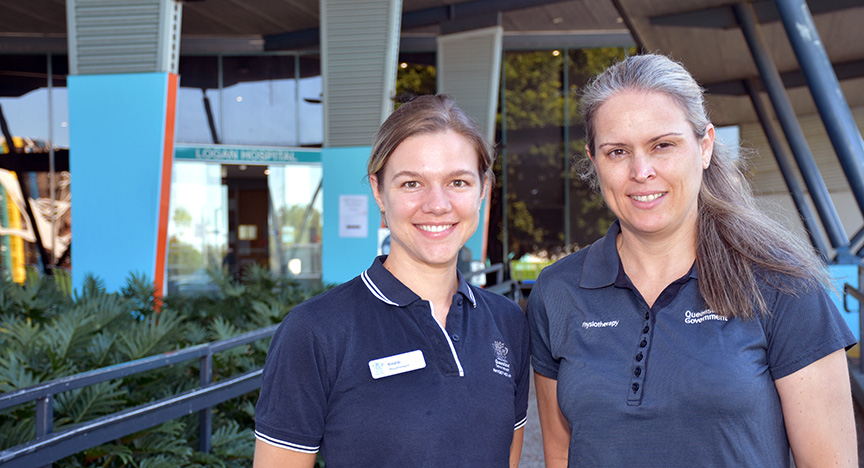
A motivated group of physiotherapists from across the state stepped into a workshop on lower limb retraining earlier this month, learning creative solutions to enhance stroke survivors’ mobility.
This is the second time Logan Hospital has hosted the globally run three-day workshop, with the first session coinciding with the opening of the Rehabilitation Unit 10 years ago.
Senior Rehabilitation Physiotherapist Melanie Godfrey (pictured right) said the workshop focused on helping therapists working with stroke survivors to minimise lower limb impairments and increase engagement in activities.
She said the presenters were known for their unique approach in creatively setting up an environment to promote exercises that were highly challenging with a high number of repetitions.
“Their approach is based on research on neuroplasticity and is evidence-based,” she said.
“The exercises use very low-cost equipment, making them easily portable and more accessible to patients from lower socio-economic areas.
“Removing these barriers makes it easier for the patient to integrate exercise into their routine resulting in more practice and typically a faster recovery time.”
Several current and past inpatients from Logan’s Rehabilitation Unit were invited to join the workshop, completing up to 1000 repetitions of leg exercises over the three-days.
Melanie said the patients’ abilities drastically improved after participating in the targeted exercises.
“We had one patient who was able to achieve standing 30 times on day two and three of the course after being unable to stand for several months prior, and another patient who improved enough to achieve independence in his walking and was able to return home earlier than expected,” she said.
Of the 24 physios in attendance, six were from Logan Hospital, including Rinaldi Pretorius (pictured left).
The second-year physio said she attended the course to ensure she was using current, evidence -based techniques that were effective for goal attainment with patients undergoing rehabilitation.
After completing the workshop, Rinaldi said she felt more confident in prescribing more tailored interventions.
"The most standout thing for me was how to perform more in-depth analysis of the biomechanics of different day-to-day tasks such as reaching in sitting and standing, standing up from sitting, and walking," she said.
"I feel more confident around identifying movement limitations specific to my patients’ goals, and ensuring my interventions are tailored to their learning and needs at any given point during their rehabilitation journey."